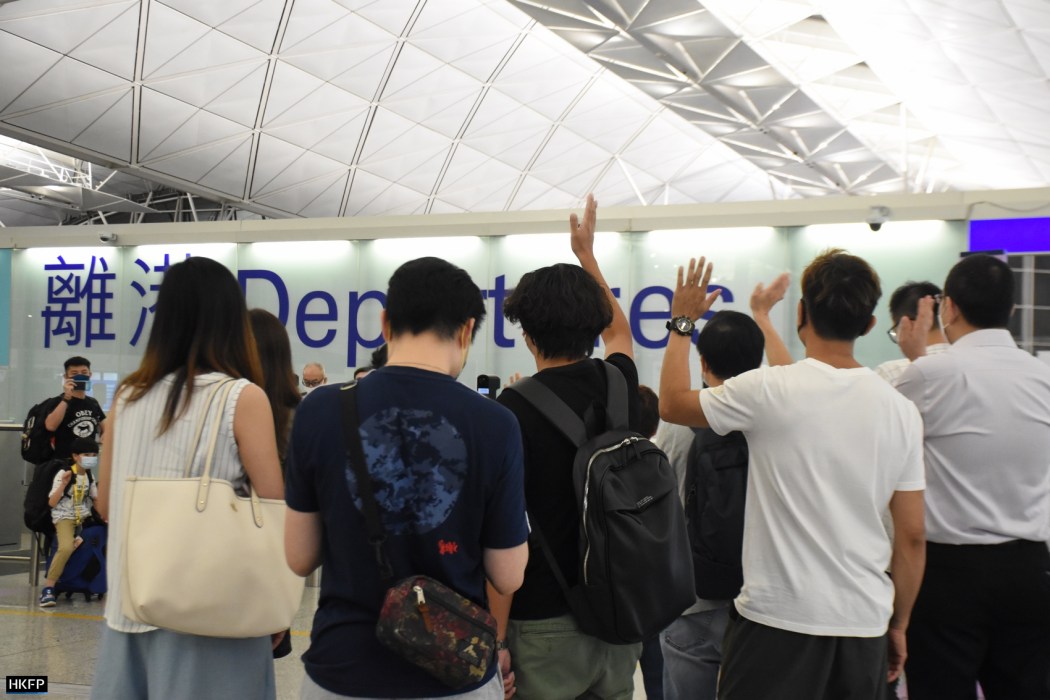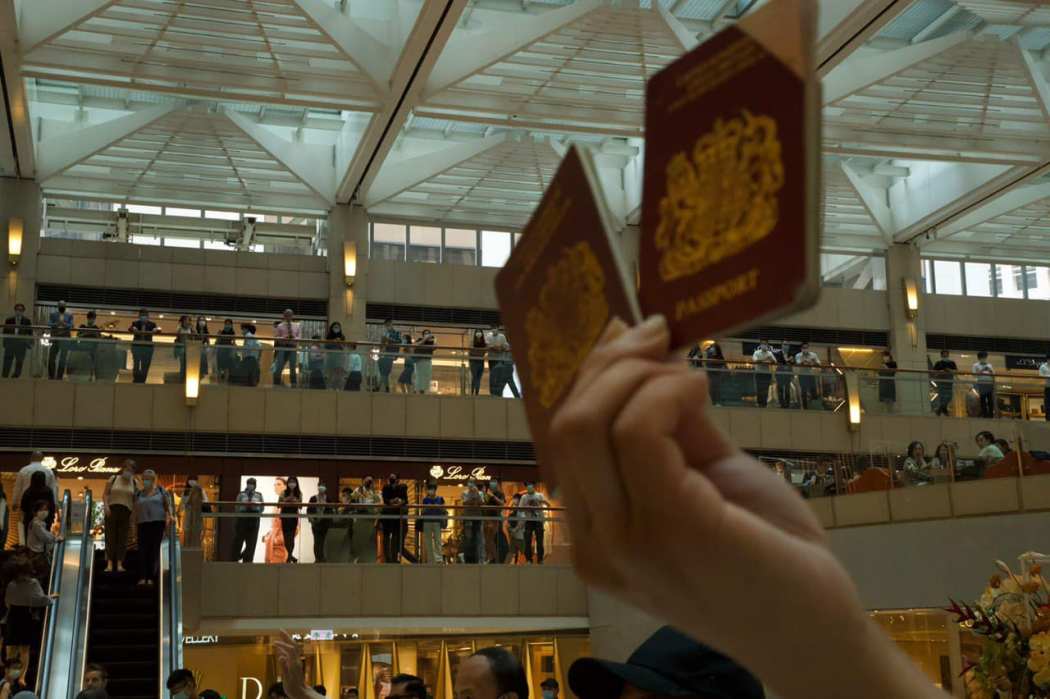Hong Kong has seen a mass exodus following the anti-extradition bill protests in 2019 and the implementation of the sweeping national legislation in June 2020. The city is once again seeing scenes like those in the years leading up to the Handover, with people packing up and starting a new life in a foreign country.

While the government disputes the scale of the phenomenon, and attributes the population change to the Covid-19 pandemic, HKFP has compiled ways of measuring the extent of the mass exodus.
School vacancies
According to data provided by the Education Bureau, public primary and secondary schools in Hong Kong saw a total of 63,098 vacancies in November. Secondary school vacancies recorded an increase from 44,539 last October to 45,363 in November.
HKFP also compiled data from four English-language prestigious secondary schools, and found that each school, on average, had 120 early exit students in the 2020-21 school year.
Among the four academies, Good Hope School had the highest early exit number, with 165 students leaving during the 2020-2021 academic year. St Joseph’s School recorded 12.7 per cent of its students dropping out in that period.
A survey conducted by the Hong Kong Association of the Heads of Secondary Schools and the Hong Kong Centre for International Student Assessment at CUHK between September and October also showed that Hong Kong’s secondary schools lost almost 4,500 students and 1,000 teachers in the 2020-2021 academic year, averaging 32 students and seven teachers per school.
“Teacher turnover and teachers leaving Hong Kong reflect the problems of brain drain we face today,” the report said. “We will face the same problems in the future as some students are leaving Hong Kong today. Talent has been a very important resource and the issue of brain drain will affect the future development of Hong Kong.”
BNO visa application
Following the anti-extradition bill protests and the implementation of the Beijing-imposed national security law, Britain announced a new immigration path for holders of British National (Overseas) (BNO) passports in October 2020.
The route allows BNO passport holders and their dependants to apply for settlement following a five-year stay in the country, and for British citizenship after the sixth year.

“The bespoke new Hong Kong BN(O) Visa route recognises our historic and moral commitment to BN(O) status holders in Hong Kong, giving them the option to live in the UK if they decide that is an appropriate choice for them,” the UK Home Office said in a statement published last January.
According to the latest data published by the Home Office in November, the UK received 88,000 applications for the BN(O) route since the scheme began in January. Whitehall granted 7,200 applications in the first quarter, over 40,000 applications in the second quarter, and over 28,800 application in the third quarter of 2021.
The new scheme sparked criticism from the Hong Kong and Chinese governments, with both authorities announcing that they had stopped recognising the BN(O) passport as a valid travel document.
MPF withdrawal
Under Hong Kong’s compulsory pensions scheme, the Mandatory Provident Fund (MPF), early withdrawals of pensions funds were only allowed in a specific set of circumstances, including early retirement, permanent departure from the city, or terminal illness.
The amount of pensions fund withdrawn before scheme members reached the age of 65 because of permanent departure more than doubled between the first quarter of 2018 and the third quarter of 2021, from HK$1.15 billion to HK$2.604 billion.
Following the Hong Kong government’s announcement that it no longer recognised BN(O) passports as valid travel documents, the Mandatory Provident Fund Schemes Authority said in March that “scheme members cannot rely on BN(O) passport or its associated visa as evidence in support of an application for early withdrawal of MPF.”
Despite the announcement, the number of claims in the first three quarters of 2021 exceeded the amounts in the first three quarters of the past two years. The figure can be seen as an indication of the number of people leaving Hong Kong for other countries or the UK, but not using the BN(O) route.
What does gov’t data say?
According to population net movement data provided by the Census and Statistics Department, Hong Kong reported a net outflow of over 70,000 citizens in mid-2021. In fact, the city has been recording a net outflow of population since the end of 2020, for the first time since mid-2013.
The last time Hong Kong saw a population net outflow of close to 70,000 people was in mid-1966, where a net outflow of 46,200 people was recorded.
The Hong Kong government said in response to the 2021 data that the figure should not be interpreted as an increasing trend of people emigrating overseas.
“Net movement, which includes the movement of Hong Kong residents into and out of Hong Kong for various purposes including work and study, is conceptually different from immigration and emigration,” said a government spokesperson in a statement published in August. “Being an international city, Hong Kong’s population has always been mobile.”

Chief Executive Carrie Lam also attributed the outflow of population to the Covid-19 pandemic, saying that the number of One-Way Permit holders coming into Hong Kong has significantly decreased as the city had yet to resume quarantine-free travel with mainland China.
Following the publication of Lam’s last Policy Address in her current term in October, Hong Kong’s leader said that she did not want the government to be asking citizens to stay in the city.
“We need to show citizens, whether they have already left or are planning to emigrate, what Hong Kong’s prospects will be,” said Lam.
Support HKFP | Policies & Ethics | Error/typo? | Contact Us | Newsletter | Transparency & Annual Report | Apps
Help safeguard press freedom & keep HKFP free for all readers by supporting our team























